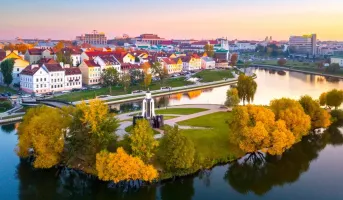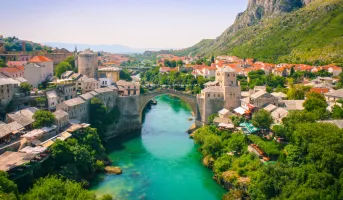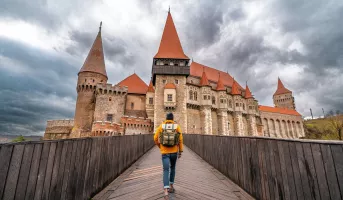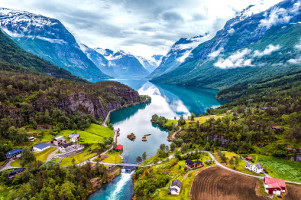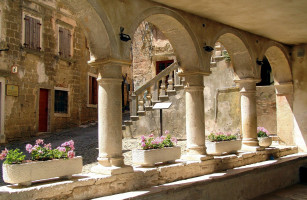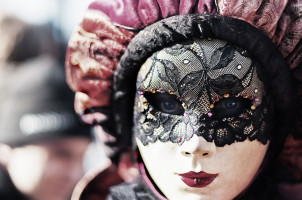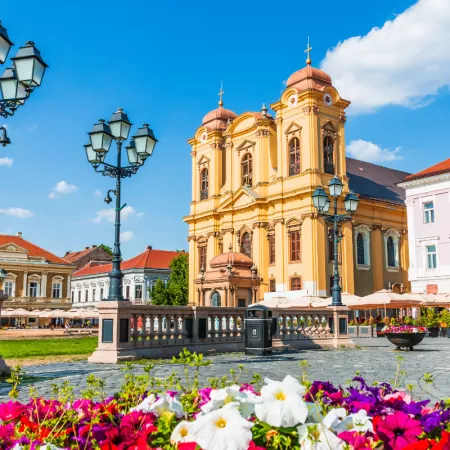
Romania
Duration
7 to 10 Days
7 to 10 Days
Best time to visit
May-Jun, Sep
May-Jun, Sep
Theme
Hill Station, Heritage
Hill Station, Heritage
Romania Travel Guide
Romania is a captivating country located in Southeast Europe, known for its rich history, stunning landscapes, and vibrant culture. With a history dating back to ancient times, Romania boasts a diverse heritage influenced by various civilizations. The country is famous for its picturesque castles, medieval towns, and the legend of Dracula. Its geography is characterized by the Carpathian Mountains, lush forests, and the beautiful Black Sea coast, offering a plethora of outdoor activities for nature lovers and adventure enthusiasts.Top Attractions in Romania
- Bran Castle
- Peles Castle
- Transfagarasan Highway
- Painted Monasteries of Bucovina
- Palace of the Parliament
Romania is Famous for
Dracula's legend and stunning castles.Top Attractions in Romania
- Exploring the medieval charm of Sibiu
- Hiking in the Carpathian Mountains
- Relaxing on the beaches of the Black Sea
- Sampling traditional Romanian cuisine
- Visiting the unique Merry Cemetery in Sapanta
What's Great about Travelling to Romania?
- Rich history and culture
- Diverse landscapes
- Affordable travel destination
What's Not So Great about Travelling to Romania?
- Language barrier for non-Romanian speakers
- Some areas may lack modern amenities
- Public transportation can be unreliable in rural areas
Travel Tips for Romania
- Check visa requirements before traveling
- Use reliable transportation services
- Be cautious of pickpockets in crowded tourist areas
Important Romania trip information
- Ideal Duration: 7-10 days to explore the major attractions
- Best Time to Visit: Late spring to early autumn for pleasant weather
- Nearby Airports and Railway Stations: Bucharest Henri Coanda International Airport, Brasov Railway Station
FAQ's on Romania
Q1: What is the best time to visit Romania?
The best time to visit Romania is during the late spring to early autumn months (May to September) when the weather is pleasant for outdoor activities and sightseeing. Summer is popular for festivals and events, while autumn offers beautiful foliage. Winter is ideal for skiing in the Carpathian Mountains.
Q2: Do I need a visa to travel to Romania?
Most visitors from the EU, EEA, and several other countries do not need a visa for short stays in Romania. However, it's essential to check the specific visa requirements based on your nationality before traveling. Make sure your passport is valid for at least six months beyond your planned stay.
Q3: What are the must-visit attractions in Romania?
Romania is known for its stunning castles like Bran Castle and Peles Castle, the medieval town of Sibiu, the picturesque region of Transylvania, the UNESCO-listed Painted Monasteries of Bucovina, and the vibrant capital city of Bucharest. Don't miss exploring the natural beauty of the Danube Delta and the unique village of Viscri.
Q4: Is Romania a safe place to travel?
Romania is generally a safe country for tourists. Exercise normal precautions and be vigilant in crowded places to avoid petty crimes like pickpocketing. Avoid isolated areas at night and be cautious when using public transportation. It's advisable to have travel insurance that covers medical expenses and emergencies.
Q5: What is the local currency in Romania and can I use credit cards?
The local currency in Romania is the Romanian Leu (RON). Credit and debit cards are widely accepted in major cities and tourist areas, but it's recommended to carry some cash for smaller establishments and markets. ATMs are easily found in urban areas for cash withdrawals.
Q6: What is the local cuisine like in Romania?
Romanian cuisine is a mix of influences from Turkish, Hungarian, and Slavic traditions. Try dishes like sarmale (cabbage rolls), mici (grilled minced meat rolls), mamaliga (polenta), and cozonac (sweet bread). Don't miss sampling local cheeses, wines, and palinca (fruit brandy). Vegetarian options are available, but pork is a common ingredient in many traditional dishes.
Q7: What transportation options are available in Romania?
Romania has a well-connected transportation system with trains, buses, trams, and taxis. Major cities like Bucharest have efficient public transport networks, while rental cars are available for exploring rural areas. Consider using trains for longer distances and buses for shorter trips. Taxis are convenient but make sure to use reputable companies or apps for fair prices.
Q8: Are there any cultural norms or etiquette I should be aware of when visiting Romania?
When visiting Romania, it's important to greet people with a handshake and maintain eye contact during conversations. Respect local customs like removing your shoes before entering someone's home and addressing elders with their title. Tipping is customary in restaurants and for services like taxis. Avoid discussing sensitive topics like politics or history unless initiated by locals. When visiting churches or monasteries, dress modestly and be respectful of religious practices. Enjoy the warm hospitality of Romanians and embrace their rich cultural heritage.
Q9: I am a travel agent. How can I buy travel leads of Romania?
Register yourself as a travel agent at agents.tripclap.com and then you can buy travel leads to Romania once your account is approved. For more details contact our support team at +91-8069186564 or support@tripclap.com
